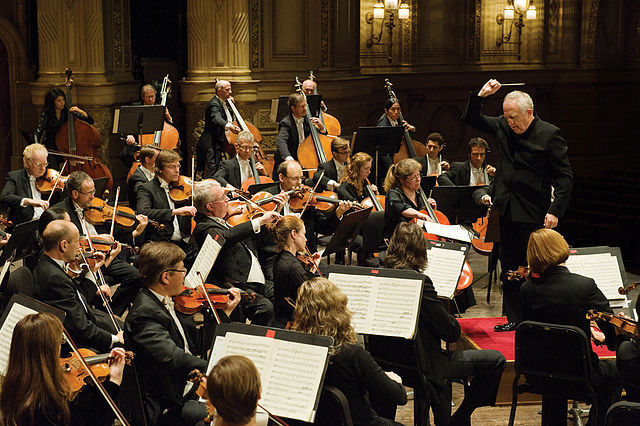With the new classical music season in many parts of the world getting underway, the question of the genre’s biggest myths is as relevant as ever.
A Seattle Times article identified four big lies about attending a classical performance. These myths included the suggestion that classical concerts are expensive, the idea that it is necessary to dress up for a concert, the dreaded question of the importance of concert hall etiquette, including “to clap or not to clap,” and the claim about a lack of younger audience members.
The article got us thinking about some other classical music myths that have become ubiquitous over recent years. Here are four of our own.
1. Classical orchestras only play old music that has no relevance to today
This is a misconception on two counts. Firstly, not all of the repertoire comes from the 18th or 19th centuries. The local orchestra here, the Vancouver Symphony, will open its season later this month with a brand new commission from its composer in residence, Jocelyn Morlock, and similar concerts could be cited from other musical ensembles internationally.

In addition, there has been a growth in recent times of the appreciation of contemporary music, including the embrace of music composed for film and video games.
Secondly, even if an orchestra’s program is largely dominated by works from the baroque, classical or romantic periods, these are some of the greatest works of art that speak to emotional and social experiences that remain directly relevant to us today.
2. Modern audiences just can’t cope with a full-length concert
There is certainly something to be said for the idea of offering shorter performances for those who want them, but this shouldn’t lead us to believe that full-length concerts are a thing of the past. I can recall last season attending a program that included Stephen Hough performing Schumann’s Piano Concerto in A minor, alongside works by Wagner and Bartok, that was followed with rapt attention by a large crowd.
Moreover, the arguments around declining audiences at classical concerts over recent years too often ignore the fact that, rather than people choosing to stay away because of an alleged lack of enthusiasm for classical performances, the global economic crisis which began in 2007-08 robbed many people of the financial resources to participate in many types of cultural activities.
3. The Mozart effect: classical music makes me smarter
At best, this proposition is strongly contested. It originated in a study in the early 1990s suggesting that listening to a Mozart sonata improved the results on certain spatial-temporal tests. However, subsequent studies have failed to confirm an improvement in intelligence as a result of listening to the 18th-century composer’s works.
A French study did reveal better test scores among a group who listened to music during a lecture compared to a group that had no musical accompaniment, but some scientists have contended that any noticeable benefit brought about by listening to music can be put down to an improvement in mood.
4. A Stradivarius always sounds better
String instruments made by Antonio Stradivari have such a distinctive sound. Or do they? This long-held belief was called into question by research conducted among musicians which revealed that they were not able to tell the difference between a Stradivarius violin and a modern instrument. If you feel like testing yourself to see if you can pinpoint what it is about Stradivari’s creations that make them stand out, try out this video.
